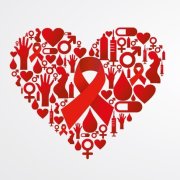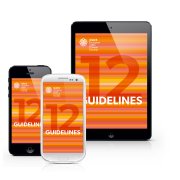HIV Summer School
HIV Summer School 2023
4-8 September, Lisbon, Portugal
The HIV Summer School is a 5-day residential course designed for clinicians involved in HIV management who wish to deepen their knowledge about all aspects of HIV medicine and research methodology.
In 2023, the course took place from 4-8 September 2023 in Lisbon, Portugal.
The course is delivered by an experienced faculty of key opinion leaders in the fields of HIV clinical care and research. Teaching is based around a combination of plenary sessions, which provide updates on the recent advances in HIV clinical science and a general introduction to clinical research methodology, and interactive small working groups led by faculty members.
For the latter, participants opt to enroll either for Module A (research methodology), which provides an opportunity to delve more deeply into the complexities of developing a research proposal, or Module B (clinical care) which provides extensive opportunities to build knowledge on specific clinical aspects of antiretroviral therapy/resistance, HIV prevention, HIV co-infections, opportunistic infections and co-morbidities.
A maximum of 60 participants are accepted.
Applicants must be physicians or clinical scientists working in infectious diseases and/or HIV. They are selected on the basis of an online application form demonstrating close involvement in the HIV field, a CV and a letter of support from their current Head of Department. Applicants must demonstrate a good command of English. Applicants enrolling in Module A must also demonstrate a clear interest in and commitment to undertaking clinical research.
A moderate fee of EUR 300 is charged which covers registration and accommodation (payment is due upon confirmation of a place in the course). Note that the participation fee is "free of bank charges". A limited number of scholarships are available to applicants from low-and middle-income countries.
Applications are closed
- Clinical topics
-
- Introduction to pathophysiology of HIV
- Value of measuring resistance of HIV
- State of the ART of ARV therapy
- Treatment initiation
- Management of unsuppressed viraemia/resistance
- Optimizing ART in the suppressed patient
- Management of co-morbidities
- HIV & malignancies
- Management of long-term ART and co-morbidities
- PrEP & STIs
- Hepatitis B / Hepatitis C
- Opportunistic infections
- HIV prevention strategies
- Research topics
-
Why is research important?
Choosing the right study designChoosing a study design
Identifying the research question and study design
P-values and hypothesis testing
Confidence intervals
Interpreting results from abstracts
Collecting data
Developing the study protocol
Developing a clinical research programme
What to look for in a presentation/paper
Identifying bias
Sample size calculations and data analysis
Sample size calculations, data analysis and completion of presentations
Educational objectives
After attending the HIV Summer School all participants will be able to:
- Apply in-depth knowledge and current understanding of the pathophysiology of HIV, co-infections, drug treatments, and co-morbidities to the management of patients living with HIV or HIV prevention
- Identify the most commonly used study designs used in HIV medical research studies and list their advantages and disadvantages
- Interpret the results of published hypothesis tests and critically appraise the methodology used in their generation
- Understand the principles of writing abstracts/full papers and critically evaluate published papers
Participants attending the clinical workshops will be able to:
- Formulate investigation and management plans for a wide range of clinical presentations
- Appraise evidence-based for the optimal management of antiretroviral therapy and complications, viral resistance, opportunistic infections, co-infections and co-morbidities.
Participants attending the research workshops will be able to:
- Understand the principles of developing a scientific abstract and a full manuscript of a clinical research project
- Critically appraise published papers.
Steering Committee
Prof. Sanjay Bhagani, Royal Free NHS Foundation Trust and University College, United Kingdom
Prof. Stéphane De Wit, Saint-Pierre University Hospital, Belgium
Dr Tracy Glass, Swiss Tropical and Public Health Institute, Allschwil, Switzerland
Prof. Christine Katlama (Chair), Hôpital Pitié Salpêtrière, France
Dr Nicola Mackie, Imperial College Healthcare Trust, United Kingdom
Prof. Caroline Sabin, University College London, United Kingdom

The HIV Summer School 2023, Lisbon, Portugal 04/09/2023-08/09/2023 has been accredited by the European Accreditation Council for Continuing Medical Education (EACCME®) with 27 European CME credits (ECMEC®s). Each medical specialist should claim only those hours of credit that he/she actually spent in the educational activity.
Information about past courses:
HIV Summer School at EACS Live! 2020
European Clinical Research Course
For previous presentations, check out the Archive!

20th European AIDS Conference
15-18 October 2025 Paris, France

EACS Guidelines updated
The EACS 12.1 and the app are available for free on


Educational Programme
Training and educating the next generation of clinicians and researchers is an EACS core activity.

EACS Resource Library
Access all scientific content of EACS core activities! (members only)

Interim Guidance
Interim Guidance on the Use of Statin Therapy for the Primary Prevention of Cardiovascular Disease in People with HIV

